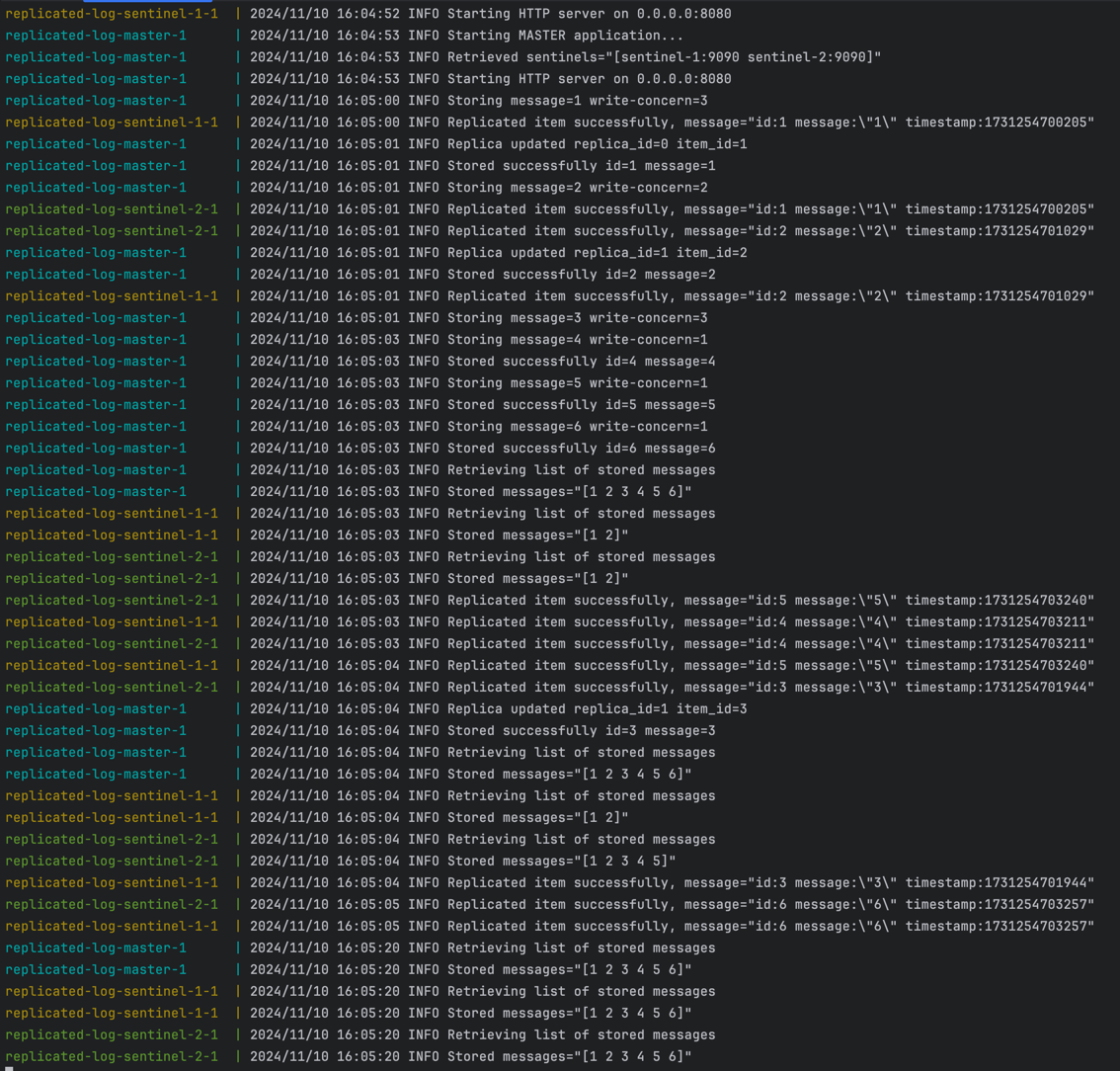This is a toy project for trying out Golang and learning some distributed systems concepts.
Master receives messages via POST /insert endpoint. It stores message in memory and replicates it to all sentinels.
Consistency level of insert operation is configurable using writeConcern request field - number of instances that needs to persist item in order to mark request as success.
Request format: {"message": string, "writeConcern": int}
Sentinels expose gRPC endpoint that stores messages replicated from master (and should be called only by master). Request format: "id": int32, "message": string, "timestamp": int64
All sentinels and master expose GET /get-all endpoint that returns list of all stored messages.
- All messages on all instances should be stored in the insertion (to master) order.
- Successful response for
/insertendpoint should be returned only after successful replication to all instances. GET /get-allon all instances should return the same messages in the same order (if no concurrent insertions duringget-allcall).
For now we assume that all requests to sentinels successful and networks always work reliably and there is no additional delays.
 Note: Logs may a bit out of order between containers.
Note: Logs may a bit out of order between containers.
docker-compose build
docker-compose upThese commands will start master on port 8080 and two sentinels on ports 8081 and 8082.
Operating locally:
./test_1.sh &
sleep 3
./test_2.sh &
sleep 17
./test_get_all.shCleanup:
docker-compose downAll configs are passed as env variables:
- ROLE: "master" or "sentinel" - role of instance in a cluster - REQUIRED
- PORT: port for HTTP server - OPTIONAL - 8080 by default
- GRPC_PORT: port for gRPC server - only for sentinel applications - OPTIONAL - 9090 by default
- SENTINELS: coma-separated list of sentinel instances in format <host:grpc_port> - REQUIRED for master
- Store new message locally on master
- Acquire lock
- Generate new id as last stored id + 1
- Insert new item by new id
- Release lock
- For each sentinel in parallel
- Send
gRPCrequest to sentinel with message and id - Sentinel inserts item locally by id without locking
- Sentinel responds with success
- If response successful - send success to result channel
- Send
- Wait for
writeConcern - 1responses from sentinels - Return success